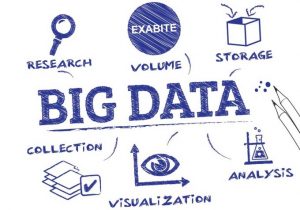
The big data analytics revolution now happening in India has the potential to transform how companies organize, operate, manage talent, and create value. It is happening in a few companies—typically ones that are reaping major rewards from their data. Be it marketing, sales, supply chain or inventory management, any and every aspect of a business can be enhanced by implementing data analytics.
Primarily the Indian e-commerce industry is emerging as a strong segment of the Indian economy. Presently people from all demographic segments geographies, consumers and merchants, have unilaterally embraced the benefits that online commerce brings to the table. Last year a Gartner report estimated that e-commerce in India was expected to grow at the rate of 60 to 70 per cent year-on-year, making the country one of the fastest growing e-commerce markets across the globe. This massive opportunity for business has also resulted in a lot of competition.
Big data is the only solution to gain market dominance in such intense competetion. These e-commerce portals are estimated to host an average of 25-30 million potential customers on a monthly basis. Big Data plays an important role in tracking the entire journey of a customer, from entry to exit. Demographics play an important role in demand. It has been observed that Kolkata and other major cities witness a spike on Durga Puja, while North India catches up during Dewali. Big Data helps in predictive analysis and inventory management by analysing customer behaviour.
Taking into account consumer purchases, page visits, previous product searches and items reviewed/rated, e-commerce companies have a lot of information on their hands. This is where big data comes into the picture. By crunching this massive store of information, big data analytics helps businesses derive consumer-centric insights to optimise business operations across almost all verticals. Be it marketing, sales, supply chain or inventory management, any and every aspect of a business can be enhanced by implementing big data insights.
To truly understand the impact it can have on a business, consider how big data analytics operates. By using technologies such as predictive analysis, trend monitoring, real-time market insights and machine learning, big data converts each and every action of the individual user into quantifiable data which can then be used to break the target consumer demographic into smaller segments. An estimated 30-40 per cent business on these websites is driven by big data tools that they implement.
Given the scenario, it can be safely said that big data is a growing influence on the Indian e-commerce landscape, both in terms of impact and adoption. We are witnessing an era where consumer actions are being integrated with technology to add great value to all the parties involved.
Data scientists and analysts are witnessing a growing demand for their services while several industry players have already set up their own specialised in-house data analysis teams. As technology evolves and becomes a more pervasive presence in our everyday lives, big data will only end up playing a bigger role in driving e-commerce.